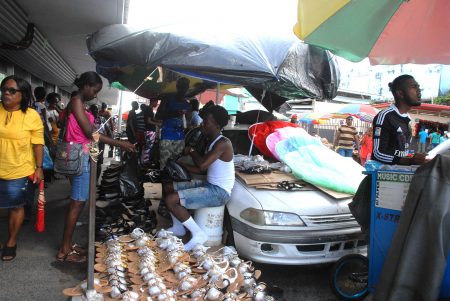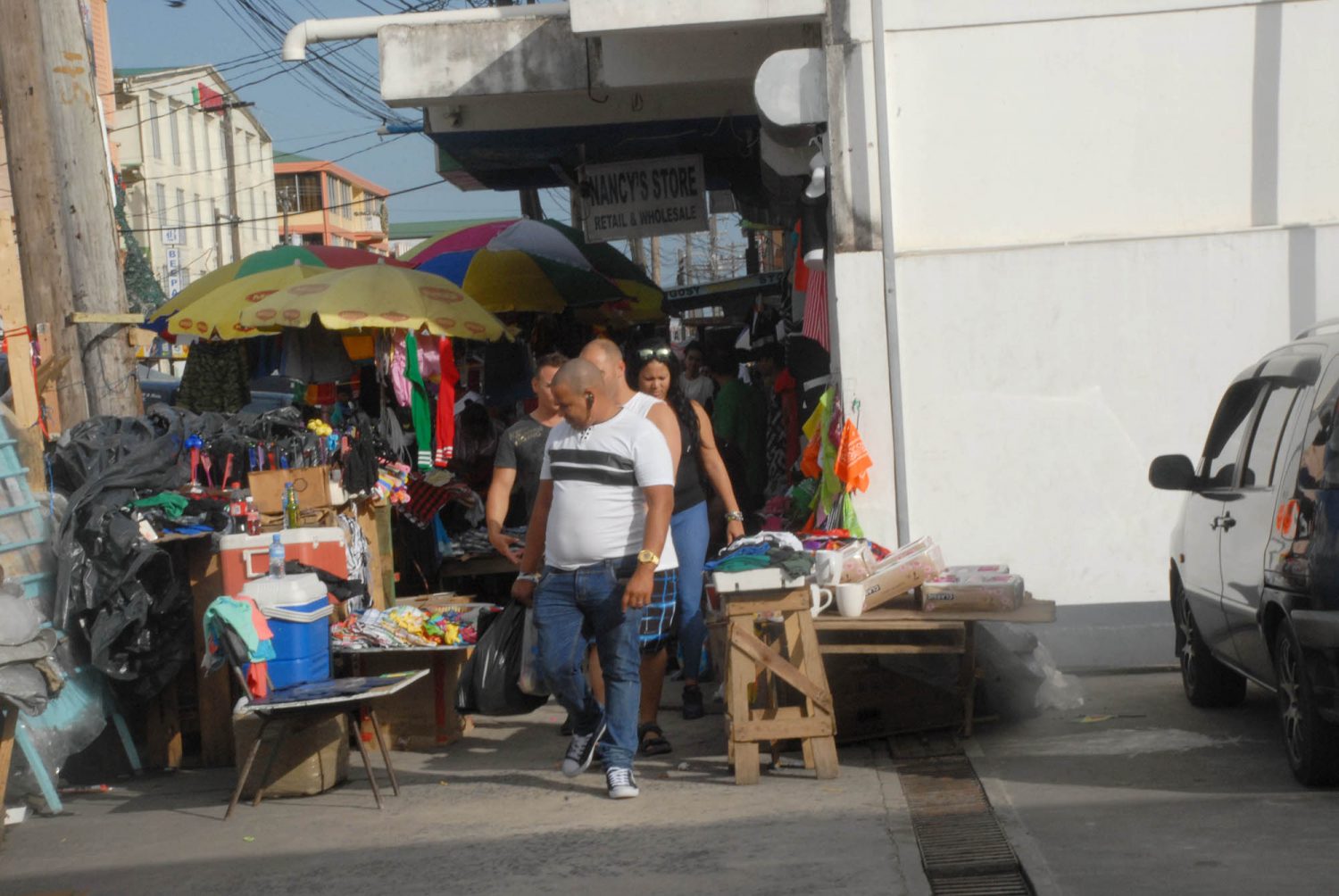Making the argument for pavement vendors in downtown Georgetown being the most resilient group of businesspeople in urban Guyana is not as difficult as it may seem at first glance. They have survived a mountain of challenges, not least, exposure to the elements, the initial indifference of shoppers favouring the more established stores and relentless pressure from the Georgetown municipality which took its own sweet time to recognize that high unemployment and urban pressures associated with survival had spawned the City vendors and that as long as those conditions prevailed they were unlikely to go away.
What Stabroek Business saw when we took our customary post-Christmas walk through the city earlier this week was a vending community, large as life, seemingly growing and even if not consolidating in leaps and bounds, holding its own. Traders accept that change is a reality and that if it is to survive it simply must adapt to that change. These days, change manifests itself in the surfeit of Chinese traders that have thronged the capital and in the growing presence here of Cubans, themselves entrepreneurs, buying in bulk to resell at home. Guyanese vendors have struck up interesting relationships with both the Chinese and the Cubans. With the Chinese it has been a question of establishing wholesale relationships, so that the goods arriving here from China can be found both inside the shops established by the Chinese themselves and on the pavement, for re-sale at only modestly marked-up prices.
The relationships with the Cubans are different. They are mostly garrulous, good-humored and never failing to reach out to the vendors on the streets. It is a remarkable thing to watch the halting discourses between local vendors and the Cubans, the vendors obviously doing their best to acquire sufficient Spanish to sell groups of Cubans bottles of water and soft drinks.

The relationships between the Chinese and the Cubans is altogether different. It is about the complexities of trading in bulk and somehow, some of the local Chinese shops have managed to recruit Cubans to work in local stores. Frankly, it is entirely fair to say that the majority of the earnings from the Cuban trading goes to the Chinese merchants.
Still, there is something in it for the local traders too. Earlier this week Loris and her sixteen – year old son told us that they had managed to negotiate wholesale deals with three Chinese stores in the capital and that what they bought from the Chinese they took to locations outside of the capital where there were no Chinese traders to sell to people there at what Loris called “a decent markup.”
Downtown Georgetown on Wednesday, the dying embers of the season appeared to have done nothing to ease the groundswell of traders particularly along Regent Street. These days the crowded pavements mean that trays of items on display can get knocked over by the throngs that jockey with the vendors for space. Of late, the vendors offering clothing and household items have been joined by others offering snacks and cold drinks from bottles or in cups filled from imported dispensers. It is fair, one feels, to suggest that the spectacular confusion that characterizes trading in downtown Georgetown points to the reality that City Hall has lost control. There is no longer any pretence at imposing order; City Police no longer swoop down and make off with armfuls of ribbon, underwear and towels. Trading persists in an environment of spectacular confusion and these days no one appears to be complaining.
On Wednesday the vendors still appeared to be out ‘in all their glory.’ A City Hall functionary concedes that the authorities have little control, that the numbers and vendors on the streets are not known to the municipality. It appears that they come and go with monotonous regularity.
A few things appear to have changed for the better. You get the impression that a growing number of vendors are beginning to appreciate the virtue of a more organized regime of garbage disposal. There are more bins in sight these days.
But – for better or worse – we have, it seems, lost our once unencumbered spaces, our pavements, to vendors, who, over time, have established a strong sense of community that is not reluctant to make the point to others that they too have a right to find ways of making a living.
On Wednesday, too, they seemed to have settled in for another longish hall of at least a few weeks…….before Mash and Easter and the country’s inaugural Carnival. Those are their trading spaces and this week they were already sizing up those windows of opportunity.










